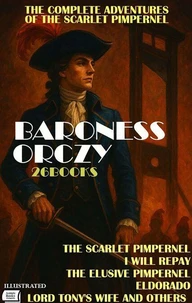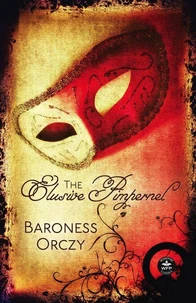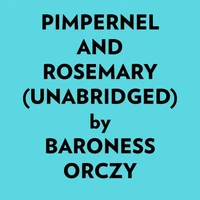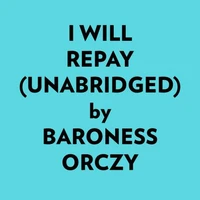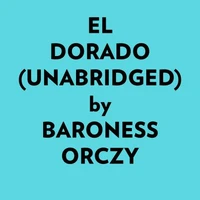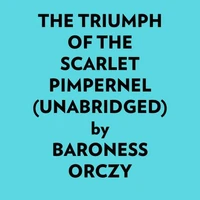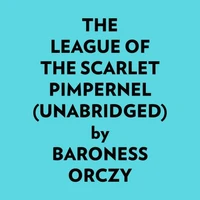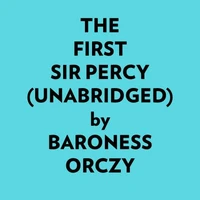Old Hungarian Fairy Tales. (Illustrated & Unabridged Classic Edition)
Par : ,Formats :
Disponible dans votre compte client Decitre ou Furet du Nord dès validation de votre commande. Le format ePub est :
- Compatible avec une lecture sur My Vivlio (smartphone, tablette, ordinateur)
- Compatible avec une lecture sur liseuses Vivlio
- Pour les liseuses autres que Vivlio, vous devez utiliser le logiciel Adobe Digital Edition. Non compatible avec la lecture sur les liseuses Kindle, Remarkable et Sony
 , qui est-ce ?
, qui est-ce ?Notre partenaire de plateforme de lecture numérique où vous retrouverez l'ensemble de vos ebooks gratuitement
Pour en savoir plus sur nos ebooks, consultez notre aide en ligne ici
- Nombre de pages200
- FormatePub
- ISBN978-625-7959-32-2
- EAN9786257959322
- Date de parution12/12/2023
- Protection num.Digital Watermarking
- Taille23 Mo
- Infos supplémentairesepub
- ÉditeurE-Kitap Projesi & Cheapest Boo
Résumé
THERE lies before me, as I write, a quaint old book; from this little book-torn and soiled, its edges all gone-nearly all the stories in this volume are drawn.
In their earliest childhood Hungarian children hear the story of "Forget-me-Not" (Nfelejts), the history of the "Twin Hunchbacks" (A Rét Törpe), and the doings of the wicked Sultana in the "Magic Cat" (A Büvos Macska.)
In my little book is the shell of these stories told simply and in few words.
Who was the originator of them? I do not think any one knows, for I have found in many instances the same incidents occurring in the fairy tales of most nations. A modified form of the vain fairy Narcissa is revived in "Little Snow White, " and "Riquet with the Tuft" has, if I mistake not, an incident similar to that in "The Twin Hunchbacks." But then again, who has ever traced the origin of all the proverbs and jokes that exist, and have existed for generations, in two score or more Eastern and Western, Latin, Teutonic, or Slavonic languages? Old Hungarian legends, just like old Hungarian music, have to the national mind no palpable origin, though Jókay or Gaal have rewritten the former and Liszt or Brahms have familiarized the world with the latter.
The following little collection has helped me in my childhood to pass many pleasant hours, so I now give them to my little English readers-embellished by many drawings-in the hope that they may derive as much pleasure from this little volume of magic and adventure as I did from my old torn copy of "Népmesék."
Who was the originator of them? I do not think any one knows, for I have found in many instances the same incidents occurring in the fairy tales of most nations. A modified form of the vain fairy Narcissa is revived in "Little Snow White, " and "Riquet with the Tuft" has, if I mistake not, an incident similar to that in "The Twin Hunchbacks." But then again, who has ever traced the origin of all the proverbs and jokes that exist, and have existed for generations, in two score or more Eastern and Western, Latin, Teutonic, or Slavonic languages? Old Hungarian legends, just like old Hungarian music, have to the national mind no palpable origin, though Jókay or Gaal have rewritten the former and Liszt or Brahms have familiarized the world with the latter.
The following little collection has helped me in my childhood to pass many pleasant hours, so I now give them to my little English readers-embellished by many drawings-in the hope that they may derive as much pleasure from this little volume of magic and adventure as I did from my old torn copy of "Népmesék."
THERE lies before me, as I write, a quaint old book; from this little book-torn and soiled, its edges all gone-nearly all the stories in this volume are drawn.
In their earliest childhood Hungarian children hear the story of "Forget-me-Not" (Nfelejts), the history of the "Twin Hunchbacks" (A Rét Törpe), and the doings of the wicked Sultana in the "Magic Cat" (A Büvos Macska.)
In my little book is the shell of these stories told simply and in few words.
Who was the originator of them? I do not think any one knows, for I have found in many instances the same incidents occurring in the fairy tales of most nations. A modified form of the vain fairy Narcissa is revived in "Little Snow White, " and "Riquet with the Tuft" has, if I mistake not, an incident similar to that in "The Twin Hunchbacks." But then again, who has ever traced the origin of all the proverbs and jokes that exist, and have existed for generations, in two score or more Eastern and Western, Latin, Teutonic, or Slavonic languages? Old Hungarian legends, just like old Hungarian music, have to the national mind no palpable origin, though Jókay or Gaal have rewritten the former and Liszt or Brahms have familiarized the world with the latter.
The following little collection has helped me in my childhood to pass many pleasant hours, so I now give them to my little English readers-embellished by many drawings-in the hope that they may derive as much pleasure from this little volume of magic and adventure as I did from my old torn copy of "Népmesék."
Who was the originator of them? I do not think any one knows, for I have found in many instances the same incidents occurring in the fairy tales of most nations. A modified form of the vain fairy Narcissa is revived in "Little Snow White, " and "Riquet with the Tuft" has, if I mistake not, an incident similar to that in "The Twin Hunchbacks." But then again, who has ever traced the origin of all the proverbs and jokes that exist, and have existed for generations, in two score or more Eastern and Western, Latin, Teutonic, or Slavonic languages? Old Hungarian legends, just like old Hungarian music, have to the national mind no palpable origin, though Jókay or Gaal have rewritten the former and Liszt or Brahms have familiarized the world with the latter.
The following little collection has helped me in my childhood to pass many pleasant hours, so I now give them to my little English readers-embellished by many drawings-in the hope that they may derive as much pleasure from this little volume of magic and adventure as I did from my old torn copy of "Népmesék."


